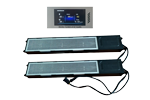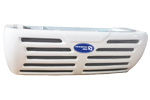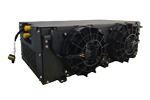In automotive HVAC systems, water valves are an important component that helps to regulate the flow of coolant through the system. These valves are typically controlled by an actuator, which is powered by an electric motor and can be controlled by a computer or by manual controls inside the vehicle.
The main function of a water valve in an HVAC system is to control the flow of coolant to the heater core, which is located inside the vehicle's dashboard. When the HVAC system is set to "heat," the water valve opens to allow coolant to flow through the heater core, where it is heated by the engine and then blown into the cabin by the air conditioning system. This process helps to warm the air inside the vehicle and provide a comfortable environment for the occupants.
In addition to controlling the flow of coolant to the heater core, water valves in an HVAC system can also be used to regulate the temperature of the coolant. This is important because the temperature of the coolant has a direct impact on the temperature of the air inside the vehicle. By adjusting the water valve, the driver or passengers can fine-tune the temperature of the air coming from the vents to their liking.
Water valves in HVAC systems are typically durable and reliable, but they can wear out over time and may need to be replaced. Symptoms of a failing water valve can include poor heating or cooling performance, or air that does not flow in the desired direction. If these problems persist, it may be necessary to have the water valve checked by a mechanic or replaced.
Overall, HVAC water valves are an important part of a vehicle's HVAC system, and they play a crucial role in regulating the flow of coolant and maintaining a comfortable temperature inside the vehicle.









.png)






